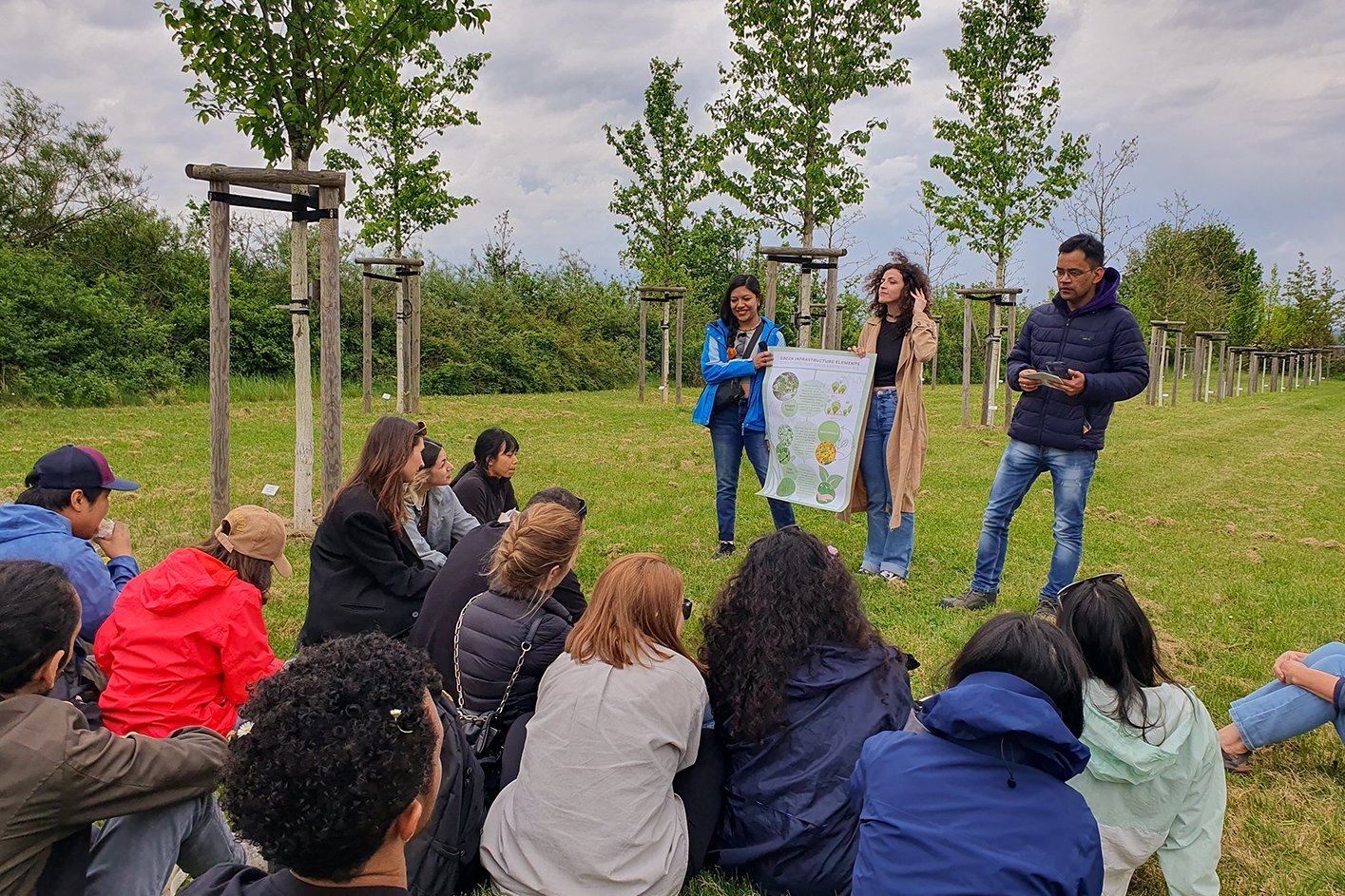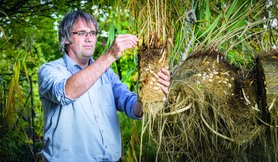
Students from all over the world research the importance of soil, water and vegetation for climate-orientated and sustainable urban developm
Master's students from 18 countries spent three weeks at the HTWD and met experts from science and practice. The topic was the interaction of soil, water and vegetation in the design of urban and landscape areas, green spaces and bodies of water with regard to climate impact, water retention and flood protection, biodiversity, mobility and recreation.
The intensive programme is part of the Erasmus Mundus study programme ‘Master of Science in Urban Climate and Sustainability - MUrCS+1.5’, in which the HTWD has been involved since 2020.
Urban Ecosystems and Nature-Based Solutions
The ‘Urban Ecosystems and Nature-Based Solutions’ module at HTW Dresden ended in mid-May 2024 with the students' final presentation. The module is taught jointly with Laht University of Applied Sciences (Finland), with the first part of the module taking place in Finland and the second as an intensive programme in Dresden.
Research, teaching and practice for climate-conscious, sustainable cities
The intensive programme with lectures and seminars, practical work in the field and in laboratories of the Faculty of Civil Engineering and the Faculty of Agriculture/Environment/Chemistry was supplemented by excursions and expert discussions with partners from science and practice in Dresden and Leipzig. The Leibniz Institute of Ecological Urban and Regional Development (IÖR), the Saxon State Office for the Environment, Agriculture and Geology (LfULG), the Environmental Research Centre in Leipzig (UFZ), a landfill operator and planning offices provided insights into ongoing research and planning projects.
Green-blue infrastructure with ‘nature-based solutions’
For the final presentation, the students demonstrated methods and innovative solutions for sustainable urban development in interdisciplinary working groups. Knowledge of ecological-technical synergies and an understanding of how soil, water and vegetation interact were demonstrated. Nature-based solutions can be used to create urban green-blue infrastructures that take climate change into account, retain rainwater, prevent flooding, promote biodiversity and enable exercise, play and recreation in green spaces.
Joint interdisciplinary and internationally orientated teaching and exchange of experience
The ‘Research Methods’ module also took place in Dresden: It is taught jointly by colleagues from the MUrCS partner universities in Glasgow (UK), Lahti (Finland) and Huelva (Spain). The basic idea of joint international teaching programmes for a ‘Joint Master’ has thus been successfully implemented. At a meeting with the university management, the international faculty of the four partner universities discussed the possible prospects for further cooperation in the future.
The MUrCS Master's in the EU's Erasmus Mundus programme
As part of the Erasmus Mundus programme, the EU funds Master's degree programmes for highly qualified students with a double, multiple or joint academic degree. The EU Commission selected 40 projects from 97 applications submitted in 2020. German universities are involved as partners in twelve of the programmes. HTWD is one of three universities of applied sciences in the MUrCS programme.
The two-year Master's programme is offered jointly with Glasgow Caledonian University, the LAB University of Applied Sciences in Lahti and the Universidad de Huelva and aims to train future leaders in the field of urban climate and sustainability.
The 22 Master's students in 2023/24 bring a wide range of professional backgrounds and several years of professional experience (including in urban and transport planning, environmental sciences, civil engineering, architecture or landscape architecture), which leads to interesting discussions, a well-founded exchange of opinions and innovative proposals for solutions.
More information:www.murcs.eu
Contact
Prof. Dr.-Ing. Henning Günther
- P1 120
- +49 351 462 3624

Prof. Dipl.-Ing. Cornelius Scherzer


